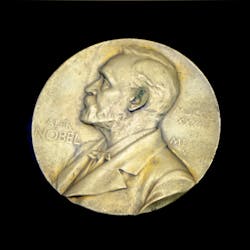National Institutes of Health (NIH) intramural researcher Harvey J. Alter, MD, has won the 2020 Nobel Prize in Physiology or Medicine for his contributions to the discovery of the hepatitis C virus, according to a press release. Alter is a Senior Scholar at the NIH Clinical Center's Department of Transfusion Medicine and shares the award with Michael Houghton, PhD, from the University of Alberta, Canada, and Charles M. Rice, PhD, from Rockefeller University, NY, according to a press release.
The Royal Swedish Academy of Sciences said, "Prior to their work, the discovery of the Hepatitis A and B viruses had been critical steps forward, but the majority of blood-borne hepatitis cases remained unexplained. The discovery of Hepatitis C virus revealed the cause of the remaining cases of chronic hepatitis and made possible blood tests and new medicines that have saved millions of lives."
Alter's career at the NIH has spanned more than 50 years, where he focused his research on the occurrence of hepatitis in patients who had received blood transfusions. In the 1970s, despite the discovery of hepatitis B, Alter saw a significant number of patients receiving blood transfusions that still developed chronic hepatitis due to an unknown infectious agent. Alter and his colleagues showed that blood from these hepatitis patients could transmit the disease to chimpanzees, the only susceptible host besides humans. Subsequent studies also demonstrated that the unknown infectious agent had the characteristics of a virus.
Alter's methodical investigations defined a new, distinct form of chronic viral hepatitis, which became known as "non-A, non-B" hepatitis. His work was instrumental in leading to the development of new diagnostic and therapeutic agents and providing the scientific basis for instituting blood donor screening programs that have decreased the incidence of transfusion-transmitted hepatitis to near zero.

